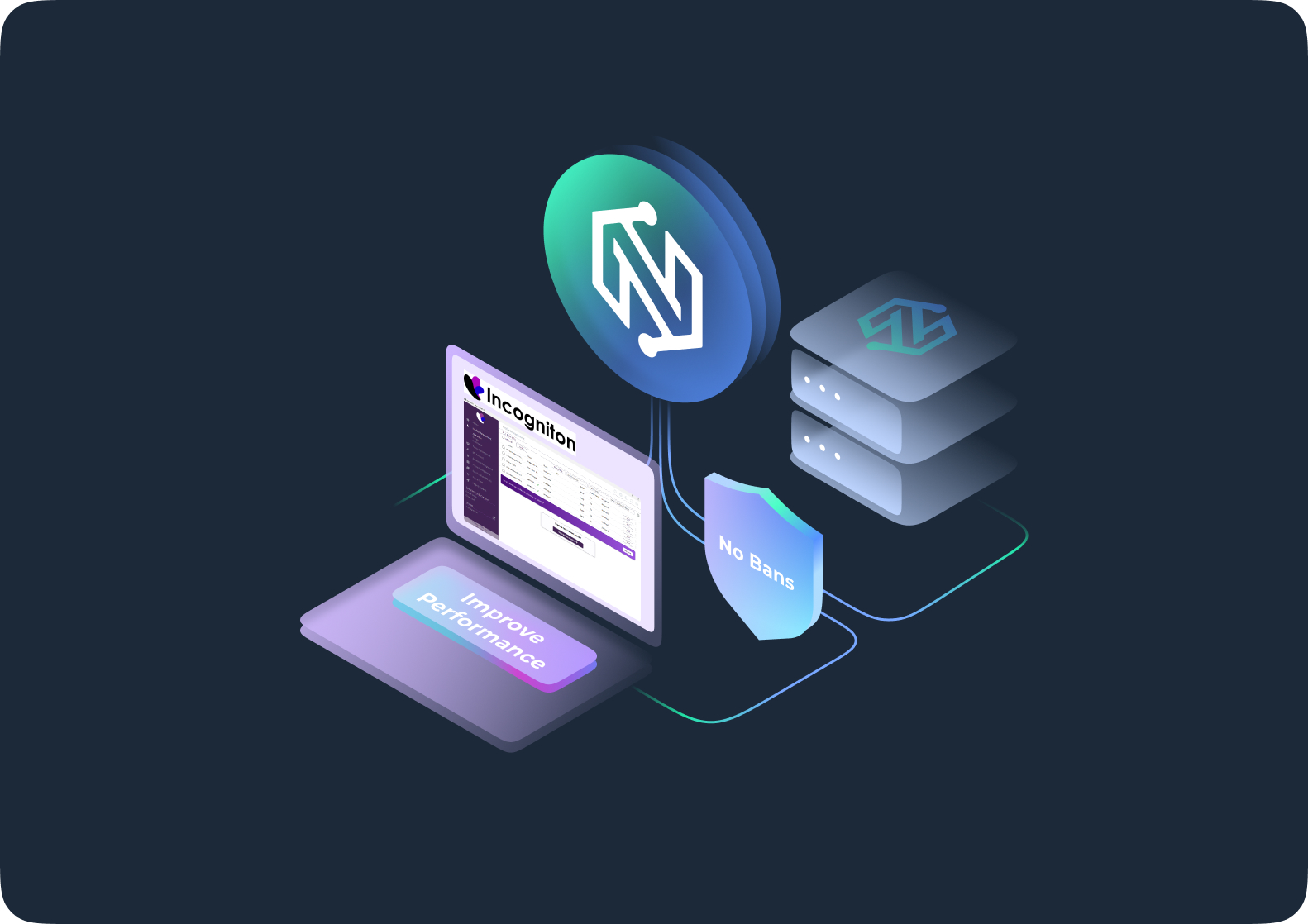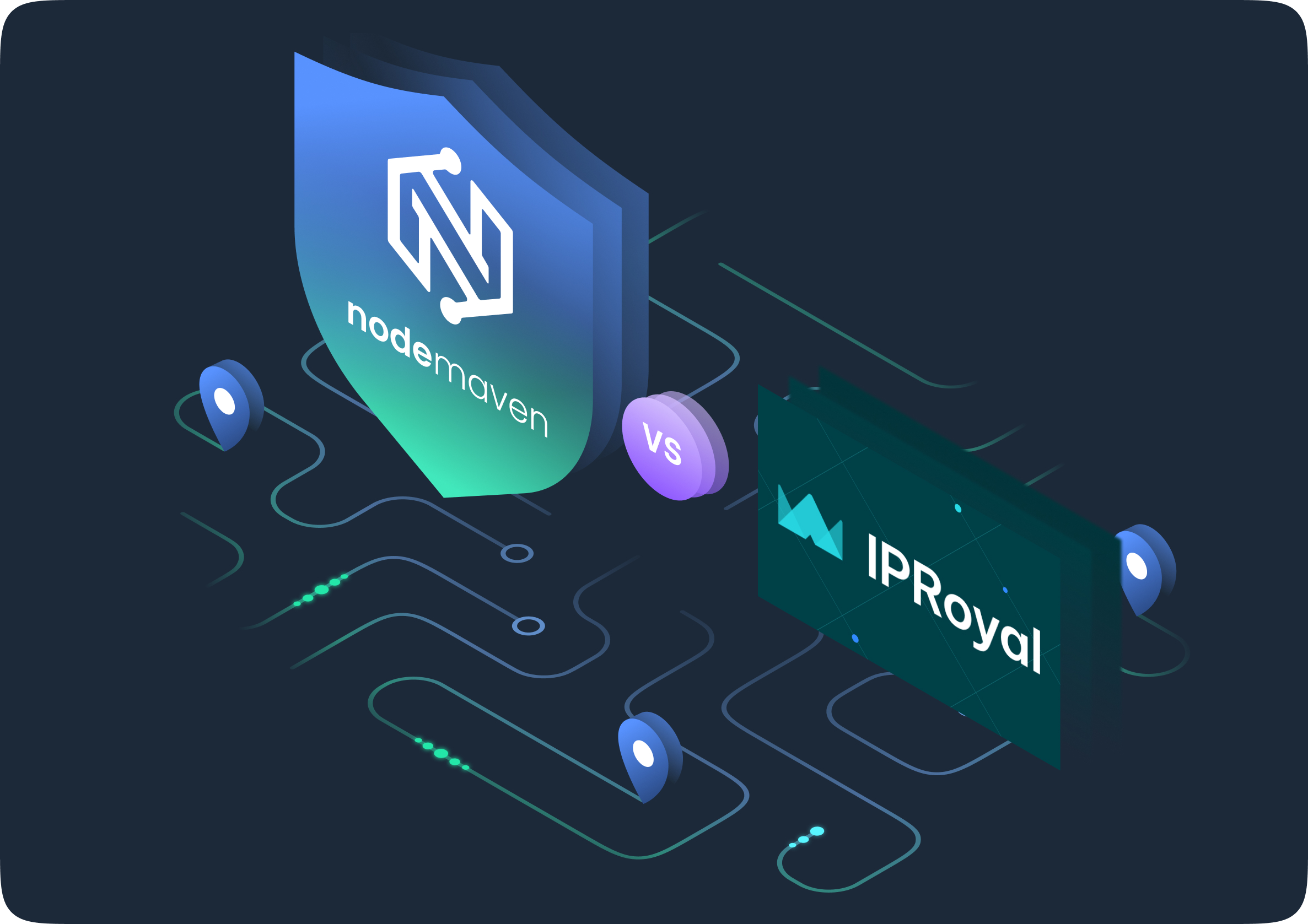In the world of proxies, companies are increasingly relying on them as a critical component of their protection infrastructure.
This is how the demand for proxy services searches has jumped by 106,5% over 2023.
One of the most effective ways to make sure you have secure access while minimizing unauthorized usage is through IP whitelisting.
In this article, we’ll break down how whitelisting works, the benefits it provides, and how to set up whitelisted IPs for your proxy servers.
Understanding Whitelisted IPs in Proxy Networks
Whitelisted IPs are specific IP addresses that have been approved to access a particular proxy server.
By using whitelisting, proxy providers and businesses can prevent unauthorized users from gaining access, reducing the risks of misuse or security breaches.
How Whitelisting Works in Proxy Networks
Whitelisting works by allowing only pre-approved IP addresses to connect to a proxy server.
When a user attempts to use a proxy, the server checks whether their IP address is on the approved list. If the IP is whitelisted, access is granted; if not, the request is denied.
This method of authentication is widely used by businesses and proxy providers to make sure that only trusted users can utilize proxy services.
Unlike username-password authentication, whitelisting eliminates the risk of credential theft or account misuse by granting access to a specific, authorized IP address.
The Role of Whitelisted IPs in Security and Access Control
Whitelisting plays a significant role in enhancing proxy security by:
- Preventing unauthorized access from unknown or suspicious sources.
- Reducing the likelihood of credential-based attacks since authentication is tied to IPs.
- Controlling access to sensitive systems or data, allowing only pre-approved users to connect.
- Making sure that only trusted connections are used, minimizing risks of proxy abuse.
By implementing IP whitelisting, businesses can maintain greater control over their proxy usage and reduce vulnerabilities.
Benefits of Using Whitelisted IPs for Proxy Access
Whitelisting IP addresses in proxy networks provide numerous advantages, particularly in terms of security, performance, and compliance.
Enhanced Security Against Unauthorized Access
By restricting access to specific IPs, whitelisted proxies prevent unauthorized connections, reducing the risk of hacking attempts or credential theft.
This secures only trusted users or systems to access the proxy, making it an essential security measure for businesses handling sensitive data.
Improved Performance and Reliability
Since only approved IPs can use the proxy, the risk of bandwidth overload from unauthorized users is significantly reduced. This leads to:
- Better connection speeds.
- More stable proxy performance.
- Reduced downtime caused by unverified users consuming resources.
Compliance with Organizational IT Policies
For businesses operating under strict IT regulations, whitelisted IPs give compliance by allowing only approved users to access network resources.
Many organizations in industries like finance, healthcare, and e-commerce use whitelisting to maintain strict access control and comply with data protection standards.
How to Set Up Whitelisted IPs for Proxy Servers
Setting up whitelisted IPs for proxy access involves configuring your proxy provider or server to allow only specific IPs to connect.
The exact steps may vary depending on the service, but the general process is as follows:
- Obtain your static IP address – Most proxy providers require a static IP to set up whitelisting. If your IP address is dynamic (changes periodically), consider using a VPN with a dedicated IP.
- Log in to your proxy provider’s dashboard – Most providers offer a user interface where you can manage your proxy settings.
- Locate the whitelisting section – Look for security settings where you can add approved IP addresses.
- Add your IP address – Enter the IPs that should be granted access and save the changes.
- Test the connection – Make sure that only whitelisted IPs can successfully connect to the proxy server.
Most premium proxy providers, including NodeMaven, offer easy-to-use whitelisting features, granting an uninterrupted and secure setup.
Common Use Cases for Whitelisted IPs in Proxy Networks
Whitelisted IPs have several practical applications across different industries, improving security, efficiency, and operational reliability.
Managing Multiple Accounts Without Triggering Security Flags
Platforms like social media, e-commerce, and online advertising have strict anti-fraud measures to detect and block multiple accounts from a single IP.
Whitelisted proxies allow businesses to manage multiple accounts undetected while avoiding account bans, securing compliance with platform policies.
Example:
An e-commerce seller manages multiple Amazon and eBay accounts to sell various products under different brand names.
Since these platforms strictly monitor IP activity, the seller uses a whitelisted residential proxy to have each account operate from a unique but trusted IP, reducing the risk of being flagged or banned.
Secure Remote Access for Teams and Businesses
Organizations that rely on remote work environments often use whitelisted IPs to get secure access to internal resources.
By restricting proxy access to company-approved IP addresses, businesses can prevent unauthorized users from infiltrating sensitive systems.
Example:
A multinational company allows its employees to work remotely but needs to make sure that only authorized devices can access its internal systems.
By whitelisting the office and employees’ home IPs using static residential proxies, the IT team ensures that employees connect from consistent, trusted IP addresses.
This minimizes security risks while maintaining seamless access, preventing unauthorized login attempts from unrecognized locations.
Preventing IP Blocks While Scraping or Automating Tasks
Web scraping and automation are highly effective for market research, SEO analysis, and price comparison. However, aggressive scraping activity often leads to IP bans.
By using whitelisted residential proxies, users can:
- Make sure their IPs are recognized as legitimate residential traffic.
- Reduce the risk of being flagged as a bot.
- Maintain consistent access to web data without disruptions.
Example:
A market research firm scrapes competitor pricing data from travel websites like Expedia and Booking.com. However, these websites aggressively block suspicious IPs.
By using whitelisted rotating residential proxies, the firm secures continuous data collection without interruptions, as their IPs are recognized as legitimate user traffic instead of bots.
Secure and Reliable Proxy Solutions with NodeMaven
When it comes to secure, high-performance proxies, NodeMaven offers the best-in-class solutions, including IP whitelisting.
Our residential proxies grant high anonymity, absolute security, and reliable access for your critical business operations.
Here’s why NodeMaven’s whitelisted proxy solutions stand out:
- Advanced security – Keep unauthorized users out while keeping your team’s uninterrupted access.
- Optimized performance – Reduce downtime and enjoy faster browsing speeds with a controlled, verified user base.
- Scalable for any business – Whether you’re managing remote teams, scraping data, or securing sensitive accounts, our proxies adapt to your needs.
- User-friendly dashboard – Easily set up whitelisted IPs and manage your proxy connections with our intuitive platform.
- 24/7 support – Get expert assistance anytime to help configure and optimize your proxy settings.
Easily set up whitelisted IPs and manage your proxy connections with our intuitive platform. Check out our IP whitelisting guide to learn how to activate and configure this feature in just a few clicks.
NodeMaven provides a secure, scalable, and high-performance proxy infrastructure made for businesses and professionals who demand the best.
Ready to experience next-level proxy security? Sign up with NodeMaven today and take control of your proxy access!


